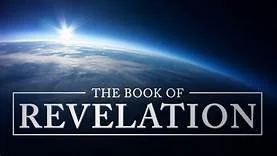360. How does God enable you to live in his forgiveness?
Through faith, repentance, and Baptism, I am made a member of Christ, a child of God, and an heir of the kingdom of heaven. Washed of sin and united to Christ, I am “justified,” being declared righteous by God, and I am given the grace to live continually in repentance and faith.
(Psalm 130:4; John 15:26–16:1; Acts 22:16; Romans 5:12–21; Titus 3:3–8)
361. Does God’s forgiveness excuse you from personal obedience?
No. God has reconciled me to himself and freed me from bondage to sin in order to conform me to the image of his Son. As I live each day in gratitude for God’s forgiveness, I seek to turn from sin and follow Christ in loving obedience.
( John 14:15–24; Romans 6:1–14; 2 Co rin thi ans 5:14–15; 1 John 3:4–10)
362. Are you still affected by your sin, despite God’s forgiveness?
Yes. My sinful actions can harm my relationship with God, do lasting damage to others, and leave me conflicted within myself. I live in constant need of Christ’s healing grace.
(2 Samuel 12:1–23; Psalm 32:1–5; Matthew 15:18–20; Romans 7:15–25; 1 Corinthians 10:1– 13; 1 Thessalonians 4:1–8)
363. How does Jesus heal you?
Through the gift of the Holy Spirit, as I continue in repentance and faith, Jesus mends my disordered soul from the effects of sin in my mind, will, and desires.
(2 Chronicles 7:12–14; Psalms 25:4–11; 41:4; 103:1–5; 2 Corinthians 3:17–18)
364. What is this healing called?
This healing is called “sanctification,” which means to be made whole and holy. By the work of the Holy Spirit, my mind, will, and desires are increasingly transformed and conformed to the character of Jesus Christ.
(Proverbs 2; John 17:15–17; Romans 12:1–2; 1 Corinthians 6:9–11; Ephesians 2:1–10; 3:14–21)
365. How does the Church assist in your sanctification?
The Church’s joyful worship, faithful teaching, grace-filled sacraments, Gospel-shaped calendar, compassionate ministry, loving discipline, and caring fellowship all assist my growth in Christ and are channels of God’s abundant care for my soul.
(Ephesians 4:1–16; Philippians 3:12–21)
366. How does the Lord’s Supper assist in your sanctification?
In the Lord’s Supper or Holy Eucharist, I hear the Law read, receive God’s good news of forgiveness, recall my baptismal promises, have my faith renewed, and receive the grace of the Body and Blood of Christ to continue following him in love and obedience.
(John 6:53–58; 1 Corinthians 10:15–16)
367. For what does sanctification prepare you?
Sanctification enables me to serve and bear witness to Christ in this life, and prepares me for the glory of God in the world to come. There I will be completely freed from sin and conformed to the likeness of my Lord, whom I will see face-to-face.
(Matthew 5:16; 1 Corinthians 13:9–13; 2 Corinthians 3:17–18; 1 John 3:1–3)
368. What marks a life of sanctification?
God calls me to a life marked by gratitude and joy. In gratitude for God’s grace in Jesus, I die daily to the desires of my fallen nature. In the joy of knowing that I will become like Jesus, I live each day in service to him.
(Luke 9:23–26; Romans 5:1–5; 2 Corinthians 4:5–18; 1 Thessalonians 1:6–10; Titus 2:11–14)
A Prayer for Increase in the Love of God
O God, you have prepared for those who love you such good things as surpass our understanding: Pour into our hearts such love towards you, that we, loving you in all things and above all things, may obtain your promises, which exceed all that we can desire; through Jesus Christ our Lord; who lives and reigns with you and the Holy Spirit, one God, for ever and ever. Amen.






